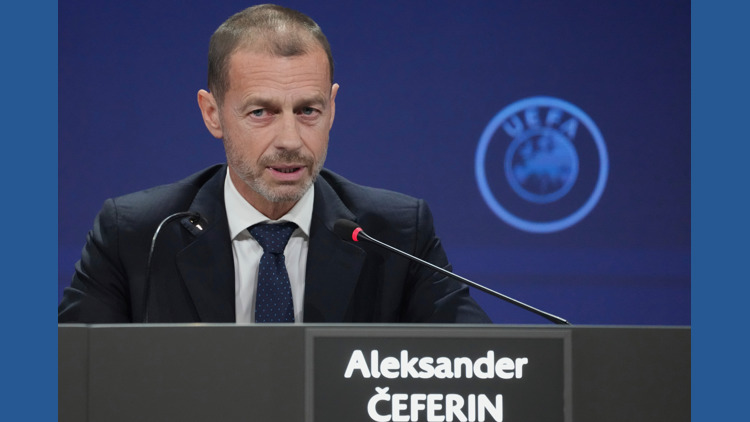UEFA is set to announce significant changes to the qualifying processes for the World Cup and European Championship within the next six months. The governing body for European football, however, has ruled out adopting a Champions League-style format for these national team competitions.
During a recent discussion at the Football Business Forum in Milan, UEFA President Aleksander Ceferin confirmed that the new plans are being reviewed to address concerns about the current qualifying system. The recent Champions League format, which introduced a 36-team league with a single standings system, has been praised for its unpredictability. Yet, Ceferin emphasized that this model will not be replicated for national team qualifiers, stating, “No,” when asked if a similar approach could apply.
Ceferin indicated that the new qualifying methods would be revealed in approximately six months. His comments follow a wave of speculation regarding UEFA’s intentions, particularly after he hinted at potential changes during a conference in Lisbon. The review of the qualification system comes during a period of declining interest in international matches among fans and broadcasters alike.
The current qualification process for the 2026 World Cup allows European teams to compete in round-robin groups of four or five, playing each opponent twice. This year, however, has seen a lack of compelling matchups, with notable discrepancies in scorelines. For instance, Austria recently defeated San Marino by a staggering 10-0, while France triumphed over Gibraltar with a score of 14-0 in a Euro 2024 qualifier two years ago.
In addressing these disparities, Ceferin remarked, “It’s too early to say anything concrete… we are not sure yet what to do.” He posed critical questions about the viability of such lopsided results, considering the realities faced by smaller footballing nations. “Does it make sense that you have a result of 10-0? On the other hand, does it make sense that such small and middle-sized teams have to play with the big ones, and they never qualify to play in Europe?”
The UEFA President suggested that there might be a way to balance the competitive landscape. He explained that smaller teams often prefer the opportunity to face larger nations during the Euros rather than in qualifying matches. “If you ask a small team, do you want to play Italy, France, England, Germany in the qualifiers, or do you want to have much more chances to play them at the Euro? It’s the second option,” he said.
UEFA has already implemented its Nations League competition, which has provided a pathway for lower-ranked teams to qualify for the men’s Euros. North Macedonia qualified for Euro 2020, and Georgia is set to participate in Euro 2024. Both teams have exceeded expectations, with Georgia emerging as a thrilling contender before losing to eventual champion Spain in the round of 16.
As UEFA prepares to unveil its new plans, the football community awaits details that could reshape the landscape of European qualifying. The upcoming changes aim to enhance the competitiveness and excitement of international football, ensuring that all teams have a fair opportunity to showcase their talents on the European stage.
